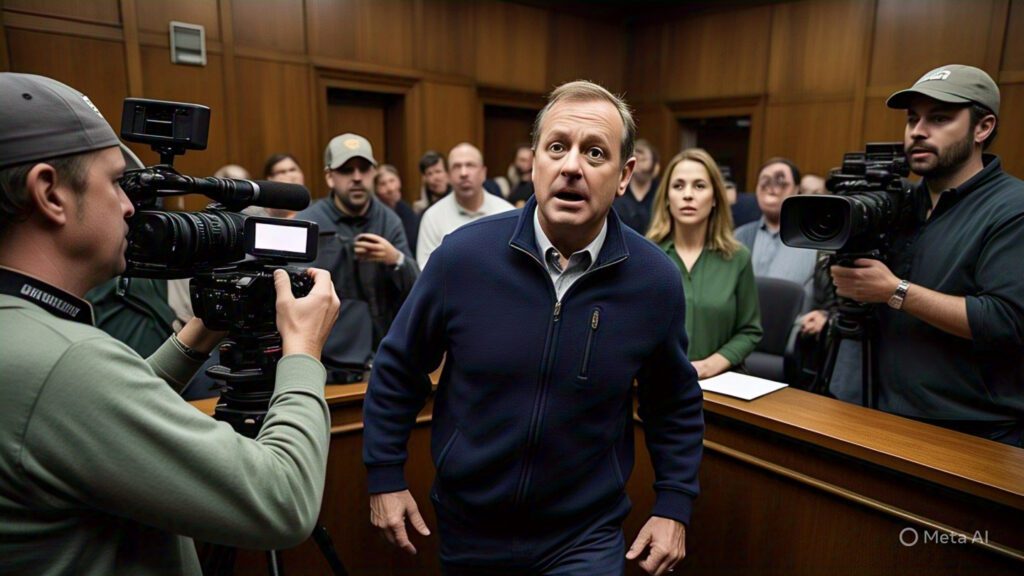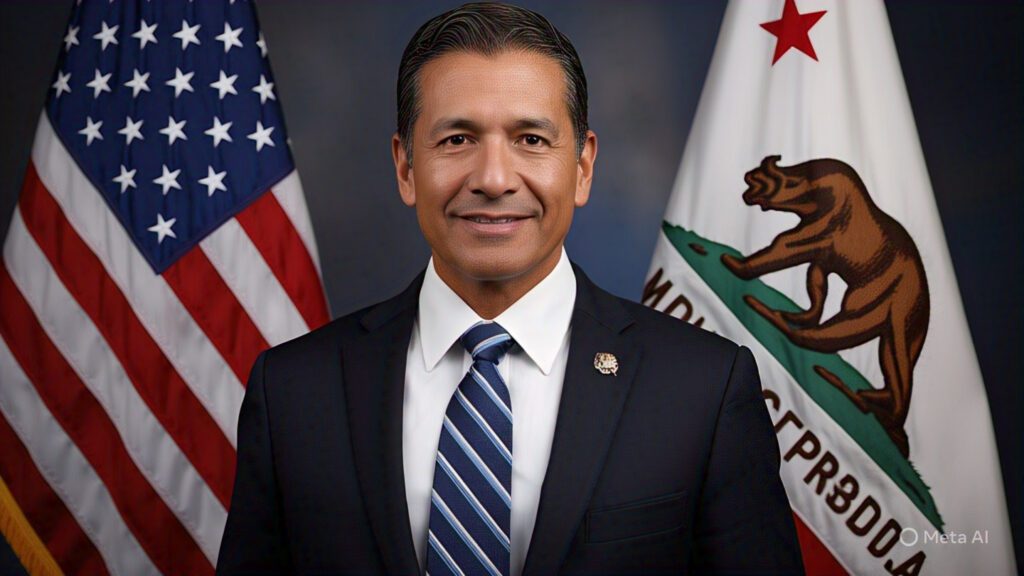In a dramatic and highly controversial moment, U.S. Senator Alex Padilla was removed from a Department of Homeland Security (DHS) immigration news conference in Los Angeles on June 12, 2025. This unexpected event has since gone viral, raising critical questions about transparency, protocol, and political accountability. The phrase “Alex Padilla removed” quickly dominated social media, triggering a nationwide conversation about civil liberties and federal overreach.
Padilla’s Confrontation at the Immigration Briefing
The press event, led by South Dakota Governor Kristi Noem—who has been temporarily managing DHS operations—had designed to address public concerns about recent immigration enforcement actions in California. However, it took a surprising turn when Senator Padilla stood up to question the legality and ethics of the federal raids.
Although Padilla clearly identified himself as a sitting U.S. senator, security personnel intervened and forcibly removed him from the venue. Video footage shows Padilla calmly asking for clarity while being surrounded by officers who then handcuffed and escorted him outside. The clip, which circulated rapidly online, sparked immediate outrage.
“I Was Silenced”: Padilla Speaks Out
Shortly after the incident, Padilla released a public statement denouncing the removal. “I was there to represent the people of California and demand answers about the treatment of immigrant communities,” he stated. “I clearly identified myself and posed legitimate questions. Instead of receiving a response, I was silenced.”
He further emphasized that the press conference was public, and as an elected official, he has every right to be present. His words resonated across political lines, prompting both praise and criticism from various corners of the media and government.
Social Media Reacts: ‘Alex Padilla Removed’ Goes Viral
As expected in today’s digital age, the incident exploded across social media platforms within minutes. Hashtags like #AlexPadillaRemoved, #SenatorSilenced, and #DHSBriefing quickly trended on X (formerly Twitter), TikTok, and Instagram. Millions of users shared their opinions, with many expressing concern about the aggressive treatment of a U.S. senator.
Commentators and influencers across the political spectrum weighed in. While some defended DHS’s actions as necessary security enforcement, others saw it as an alarming example of political suppression.

Lawmakers and Activists Condemn the Removal
The backlash extended beyond social media. Prominent lawmakers, including Senators Elizabeth Warren and Cory Booker, issued statements condemning the incident. “This is not how we treat our colleagues or any American,” Warren tweeted. “This sets a dangerous precedent.”
Moreover, immigration rights groups, civil liberties organizations, and legal experts demanded an immediate investigation. The American Civil Liberties Union (ACLU) called the event “a chilling violation of democratic norms.”
Governor Noem and DHS Respond
In contrast, Governor Kristi Noem defended her team’s actions. During a follow-up interview, she stated, “Senator Padilla disrupted a scheduled federal event without clearance. My security team acted swiftly to neutralize a perceived threat.”
DHS released a separate statement, claiming there had been “a misunderstanding of identity” and that protocols had followed “to ensure public safety.” However, critics argue that a U.S. senator’s identity should not have so easily overlooked—especially when multiple warnings were given.
The Legal and Ethical Implications, Alex Padilla Removed
Unsurprisingly, legal questions quickly emerged. Constitutional experts pointed out that removing an elected official from a public event without cause could violate the First and Fourteenth Amendments. Additionally, civil rights attorneys are calling for federal oversight of DHS event protocols moving forward.
Some are even calling for Congressional hearings to review the incident and consider measures to prevent future occurrences. If a senator removed for asking questions, many wonder, what protections exist for ordinary citizens? Alex Padilla Removed…

Symbol of a Larger National Conflict
Beyond the headlines, the phrase “Alex Padilla removed” has become symbolic of deeper political divides in the U.S.—especially concerning immigration, authority, and freedom of speech. This single incident reflects broader frustrations about how the federal government handles transparency and public accountability.
It also sheds light on increasing tension between immigration enforcement and elected officials advocating for more humane policy approaches.
What’s Next for Padilla and DHS?
As the fallout continues, Senator Padilla has vowed to pursue a full investigation. He is also drafting legislation to ensure better communication and accountability between federal agencies and elected officials during public events.
Meanwhile, public pressure has forced DHS to begin an internal review of the incident. Advocacy groups are planning protests and calling for broader reforms in how government agencies interact with both officials and the communities they serve.
Conclusion: A Moment That Demands Reflection
The fact that Alex Padilla removed from a DHS event has sparked a nationwide dialogue—and for good reason. Whether it was a security misstep or an overreach of federal power, the incident has reminded Americans of the importance of transparency, accountability, and civil discourse in a healthy democracy.
As public trust in institutions continues to waver, events like this only amplify the need for reform. Moving forward, one thing is certain: The Alex Padilla removal never forgotten anytime soon.

